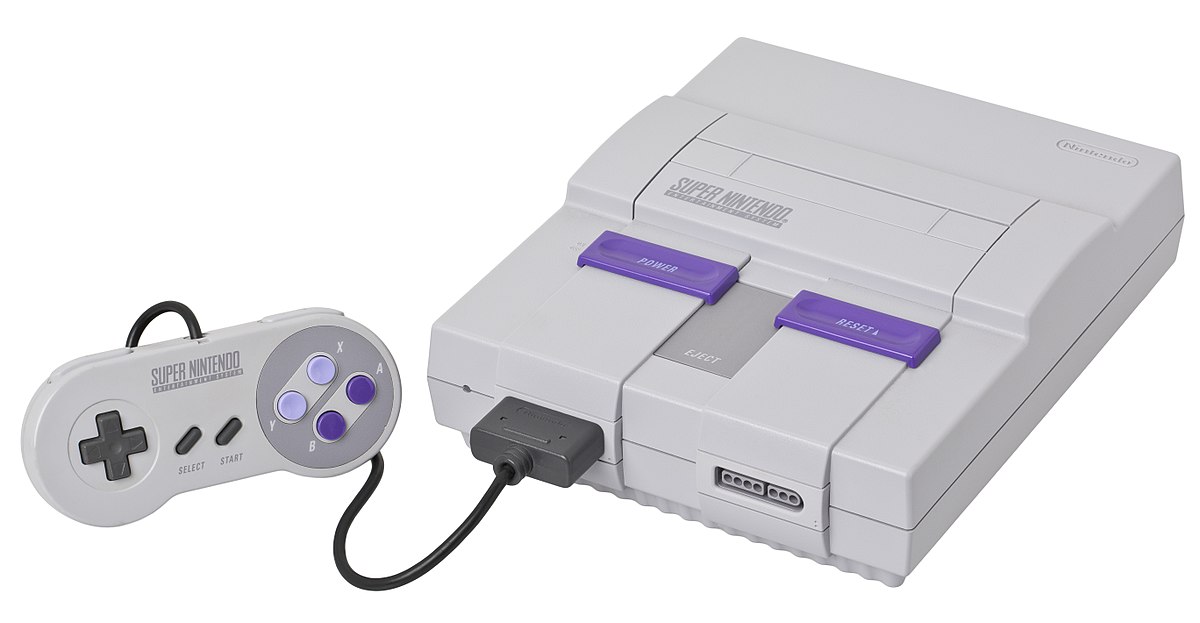
Here's a confession, perhaps embarrassing: I love lists. I love reading the lists of others and I love writing my own. So, with that in mind, and to tide you over while I work on my next review, here's a list of five favorite soundtracks from the SNES.
These are listed in no particular order. Of the five, choosing three was easy. The last two on the list, however, were in a constant state of flux as I bounced between a handful of excellent soundtracks.
Here we go.

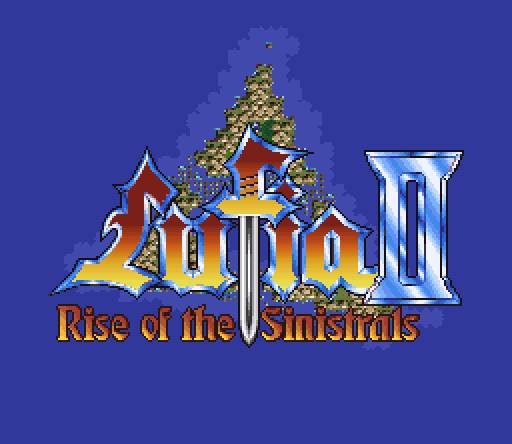
My selection of Lufia II will not surprise a handful of readers, I'll wager.
Here's the rundown: developed by Neverland, published by Taito, composed by Yasunori Shiono.
You could say - not unfairly - that, just as Lufia II is a generic JRPG executed very well, so too is Lufia II a generic JRPG score executed very well. It's a fair observation, but Lufia II, like its other companions in the Neverland SNES stablemate, is an extremely solid score. Against Chaos Seed and Energy Breaker, Lufia II is demarcated by its consistency, and it's that consistency - of instrumentation and of excellence - which puts it up there with Final Fantasy VI and Terranigma. (Even in spite of the lack of a clear main theme. So sue me.)
That consistency ensures it's a more cohesive listening experience. And there's a lot of very good music here. The title theme "Rumbling" is an excellent, six-minute-long set of variations on a theme before ending in an ominous, funereal march. A town theme brings back the main theme from the first game, seamlessly woven into the fiber of the track. The battle themes are all very solid, and among the town themes, "The Quieting World" stands out for its acoustic guitar.
There's a surprising number of classics here, more than I remembered there being, upon re-listen. "The Last Duel" is - in similar vein of "Crisis" for Vandal Hearts and "The Spirit Chaser" for Treasure of the Rudras - the 'one track people know of'. No wonder! It's genuinely excellent. One of Shiono's best melodies, a stunning intensity (which, for all its hefty instrumentation, Energy Breaker never came quite close to matching but with "Pontiff") - it's memorable.
How about the lovely waltz of "After the Ceremony" for a spin? But I love the waltz form. The amusing grease and slease of "Casino", which lasts over two minutes before loop? How about the successive trio of the mystical "The Lost World", the heroism of "Watchtowers of the Seal", and the sharp finality of "The Island in the Void" (which, despite sharing a name with a track from the previous game, is completely unrelated)?
Or perhaps you want to hear what the best of the first game sounds like in Neverland's SNES soundfont. "Door of Journey", beautiful "Priphea Flowers", the overworld theme "The Earth", and, yes, "The Last Duel" all await you.
Or maybe the heroism of "The Savior of Those on Earth" with its incredible intensity, an evocation of heroism in the face of despair.
Frankly, between Lufia II, Chaos Seed, and Lufia: The Legend Returns, it is an absolute shame that Yasunori Shiono did move on to greater things and I truly hope that we see another JRPG score from him in the future.

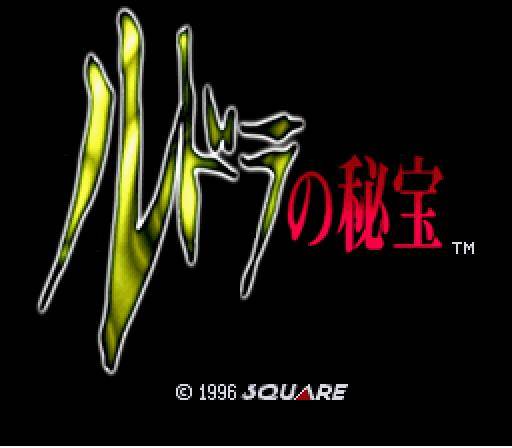
This may well be my favorite of all the games on this list. The rundown? Simple: developed by Square, published by Square, released only in Japan at the tail end of the SNES' life, in 1996, and scored by the tragically little-known Ryuji Sasai, better known for Final Fantasy Mystic Quest.
This is, in my opinion, a score just as good as the other greats Square had put out on the SNES. It is equal to Chrono Trigger, Secret of Mana, and Final Fantasy VI, not to mention the other A-tier scores. Sasai almost certainly took influence from both Uematsu and Mitsuda, but Sasai - who'd already scored two of the Xak games on computers and besides that was a genuine bass guitarist (who is almost certainly still performing if this Original Sound Version interview [the only English language interview with Sasai I can find] is to be believed) and had experience scoring anime - is his own composer.
According to the interview, he wrote over twice as many tracks as ended up in the game. It shows. The only track I actively dislike from this game is "Ko-So-Do-Ro", the 'cute' track. Not hardly.
Before diving into some favorites from the score (of which there are many) I'm going to leave here a positive note for the soundfont, which is one of my favorite on the SNES. It's got such a warm sound to it. It's very ear-friendly, it doesn't grate.
The title and opening track are both excellent - those Uematsu and Mitsuda influences both a little visible in "The Quest for Rudra's Mine", but don't take that to mean that it's just a cheap clone. "Beginning for the End" is wonderfully dramatic, almost overture-like.
The character themes are all excellent, as are their night versions. One thing you may observe - or possibly criticize - is the similarity of melody between the main theme ("Rudra") and the character themes. I'm convinced that this was by design, a way of creating thematic coherence, leitmotif-by-similar-structure. (Energy Breaker has something similar going on, but I don't think it was intentional. There's no clear main theme for the other melodies to derive from.)
"Earth Bound" is wonderfully worthy of dancing with its bass and synths. "Underwater City" summons the image of water by means quite unlike anything else I've ever heard, namely, by using an instrument of the desert - the sitar. (An instrument which appears a couple of other times in the score.) "Dance with the Zombie" is a fantastically demented waltz, which, naturally, I love.
"The Inhuman Condition" goes for an almost stealthy tone with its bass notes and percussion rhythm, the descending choir an interesting but utterly fitting choice.
The battle themes are all very good, though the final battle disappoints me a little bit. I feel more could've been done to make it really stand out in intensity - even with four parts to the track, I think all four could've done with more length, and more to distinguish them from the other battle themes.
I'm going to stop here because if I go any further I will, inevitably, end up going through the entire score and heaping praise upon it. I don't know if I could review this; but for half a dozen tracks - less, I'd say - I thoroughly enjoy every track. In any case, it has my highest recommendation.

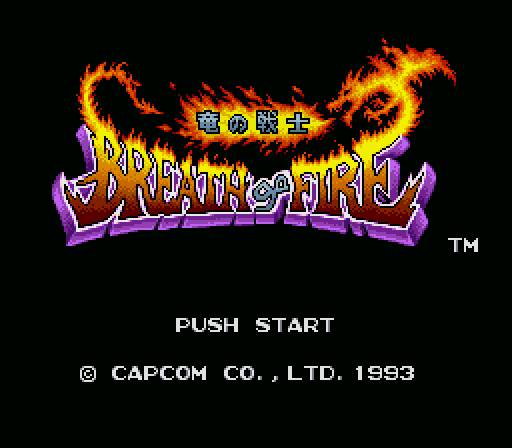
This is another too unknown soundtrack. Here's the rundown. Developed by Capcom, published by the same in Japan, and published in America by Square. The sound team was much larger than any other JRPG thus far: Yasuaki Fujita (41 tracks), Mari Yamaguchi (5), Minae Fujii (1), Yoko Shimomura (1), and Tatsuya Nishimura (uncredited, 1).
An amusing story is that for the longest time no one had any idea who wrote what. In fact, before Fujita posted on his blog the credits most people seemed to agree that Mari Yamaguchi wrote most of the music. There's truly fascinating reading at this old post on the VGMdb forums.
Breath of Fire sounds not quite like any other JRPG on the SNES, and the reason for this is that Fujita, who gave though to resigning after it (and, eventually, did resign before the game was done), put a great deal of effort into it, going into the game with the concept of a 'piano concerto' in mind, and sure enough, there is plenty of piano, both virtuosic in style and not.
In my opinion, this score isn't quite as good as the previous ones on this list. But I don't think it quite deserves to be forgotten, either. "The Dragon Warrior" is stirringly dramatic, by turns darker then you would ever expect it to be. The overworld theme "Starting the Journey" is a genuine classic (and, also, the one track people have heard of. I'm tempted to come up with a term to refer to them. Score ambassadors, perhaps?) from the hands of Yamaguchi, memorable and crafted perfectly. It would've been a worthy main theme for the series.
Unique to Breath of Fire is a change of overworld theme as you progress through the game - and so we get Fujita's bright and cheerful "Distant View", another very good track. Turning backwards we find the emotional "Fate", another Yamaguchi track. It's beautiful, its first half a piano solo before joined by strings and winds.
The battle themes are, unfortunately, nothing particularly exceptional. "Beginning of the Battle" has a very long sustained held note on the strings that goes on far too long, and "Battling", while intense, is maybe a touch too short.
Towards the end of the game we get a number of great tracks. "The Empire", bleak and oppressive in its majestic first half as its malicious second half. Then we have "A Powerful Emperor" (which actually appears much earlier in the game) with its potent cinematic drama, influenced heavily by Star Wars it's true. The oppressive "The Final Level" with its eerie celeste/glockenspiel-like sound bouncing between ears and contrapuntal interplay between strings and winds, to say nothing of the powerful bassline.
Serving in the apparent duel roles of scene theme and battle theme is "Black Dragon", another oppressively powerful track. Within it we can hear, in slower form, string arpeggios that appeared also "A Powerful Emperor" - intentional reference or coincidence via means of compositional style? I lean to the latter. In any case, the best battle theme in the game.
But alongside the many great tracks are many filler tracks which are sometimes rather difficult to listen to because of the odd, plasticky soundfont chosen. The brass sound synthetic, the strings thin, the oboe very piercing, the piano - well, the piano actually comes off surprisingly well. But others are just filler tracks that aren't very interesting. (That said, I despise the Breath of Fire II soundfont, which - in me, at least - induces headaches and sounds even more synthetic, with an added layer of artificiality to it.)
Even so, I think this score deserves more attention.

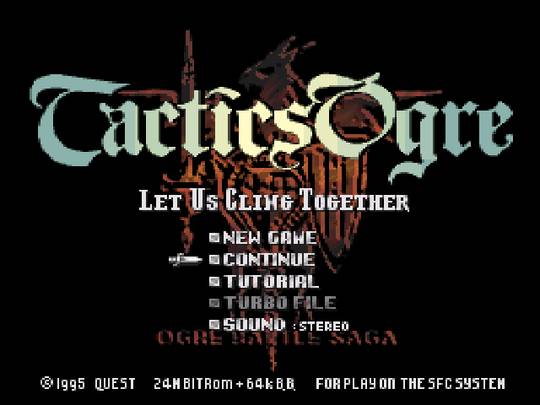
Long before Final Fantasy XII, and even before Final Fantasy Tactics, Hitoshi Sakimoto offered the first herald of what would become 'his' style for RPG games in Ogre Battle: March of the Black Queen, which he scored alongside Masaharu Iwata and Hayato Matsuo. This game, Tactics Ogre: Let Us Cling Together, is the sequel to that one, this time scored by Sakimoto and Iwata. (It was developed and published by Quest, released on the SNES [the version I'll be speaking of here] in 1995.)
Despite the limitations of the SNES, Tactics Ogre is one of the best-sounding scores of the platform, not only ear-friendly but very 'full'. Listening to it, you'll probably hear a lot of precursors to Sakimoto's work to come: the sometimes industrial-like percussion, the brass and strings, the 'cinematic' vibe a little reminiscent of John Williams but still uniquely Sakimoto. (For reason that this score is likely to be much more familiar via its descendants than the others, I'll not spend as long on it.)
It is a fantastic soundtrack. It is, in my opinion, not as consistent in quality as Lufia II or Treasure of the Rudras (though just as, if not more, polished), which prevents me from giving it the high accolades I gave those two. And there is a distinction between consistency and polish, though the line is a little difficult to demarcate. (To make it easy, though, I'll say Chaos Seed is quite polished, but inconsistent, whereas Energy Breaker is much more consistent, but rather unpolished.) It comes close, but doesn't quite reach it.
Here's a couple favorites for you: the dark "Blasphemous Experiment", an ominous, suspicious - almost skittish, you could say - piece of music, ideally suited to the sort of Victorian mansion one would conduct blasphemous experiments in. Some distance away is "Breath of the Earth", a quite varied track, opening heroically before moving into something with some contrapuntal lines giving it more nuance. At a minute it drops these pretensions of heroism for something more wandering - and a lovely duet between two horns at the end before loop.
There is, of course, also the absolutely epic final battle themes "Unsealed". (There's an absolutely stunning assortment of fantastic final battle themes from the SNES era. It's practically list worthy on its own.) The stormy timpani, powerful brass, crashing percussions, strings, and, yes - even oboe! - make this a powerful, angry piece of music. Even so, I am still left wishing it went on a little bit longer.

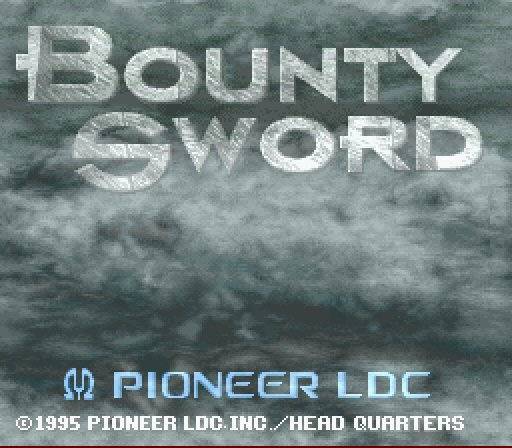
Having settled upon Tactics Ogre: Let Us Cling Together for the fourth of the five unordered slots, it left the fifth, and there were only ever two candidates for it: Bounty Sword and Mystic Ark. And there are a number of similarities between these two. They share, in their sound staff, Akihiko Mori - in the former game, he arranges Kohei Tanaka's music for SNES, in the latter, he is sole composer. Through Mori, the games share a soundfont. (To some extent, it's difficult to tell how many fingerprints are Mori's own, or Tanaka's by influencing Mori, between the two games.)
And, listening to Mori's score, despite its many differences, one can't help but feel that he was inspired, and learned from, Tanaka's music in Bounty Sword. And Tanaka was, by any measure, the elder of them: where Mori effectively languished his entire career in obscurity working solely on videogames (until a sad death by cancer in 1998), most of which were Japan-exclusives, Tanaka was an established composer of anime television and films who'd been working since the mid-80s.
(In fact, we've seen Tanaka before on this blog: he composed six fully orchestral tracks for The Granstream Saga, played by a session orchestra and conducted by Tanaka himself.)
But in the end, I decided to highlight Bounty Sword, which is, by some margin - probably a slim one - even more unknown than Mystic Ark. Tanaka deserves more attention. He's one of the very few genuinely good orchestral composers working - equal to the best of Sakimoto or Sugiyama. (For my money, he's one of the few composers that could take over Dragon Quest from Sugiyama when he dies.)
It opens with the dark "Ambition" before moving on to the aptly-named "Main Theme", which, sure enough, reappears many times in the soundtrack, including "Decisive Battle ~Invincible Knight~" where it is put on more heroic brass rather than the melancholy horn sound.
"Theme of Darkness" introduces another leitmotif that'll run through the score, and in a lovely change from the norm, this is not a rip-off of the "Imperial March" from Star Wars - instead, it is more of a dirge.
There seems to be another recurring leitmotif which also appears in a couple somewhat different forms - "Rescued Soldiers", "Tidings of War", and "Furious Battle" all have it somewhere, even "Pleading for Life" - perhaps we could call this a 'war motif', because it seems to revolve around the concept of war, and war's aftermath.
These three main leitmotifs that run throughout multiple tracks on this score give it a level of coherence, and thematic development, that, among SNES JRPG scores, only Final Fantasy VI comes close to. (I have, for purposes of clarity, omitted 'leitmotifs' which appear in only a single track.) Combined with the marvelous quality of music - powerful battle themes, memorable leitmotifs, the peaceful overworld theme - this is one of the strongest unknown soundtracks of the score.
"Choukishin", the final battle theme, naturally tops all previous battle themes for length and intensity - even though I am still left wishing it went just a little longer, and just a little bit more intense. Perhaps I just expect too much. "Fate and Conscience" is suitably joyful, while the ten minute long (!) "Staff Roll" reprises many of the themes from the score, including the most cheerful rendition of the 'main theme' in the entire soundtrack.
And there you are. Five favorites of mine from the SNES (though let's face it, the ones I actually love are Lufia II and Rudras), all of them lesser-known soundtracks compared to the well-known scores originating from the Squaresoft and Enix (remember, this was before they merged) stables.
Do you have five favorite lesser-known scores? Have you heard the five I listed, and if so, what did you think? Please let me know in the comments.
I played 3 of those and yeah, they're among my favorites from that era. Lufia II I sometimes play as background music while I drive, though my go-to soundtracks are Crono Trigger and Secret of Mana.
Downvoting a post can decrease pending rewards and make it less visible. Common reasons:
Submit
Those are two fantastic scores. I don't know how they do it but Square just kept turning out musical masterpieces from Secret of Mana until Final Fantasy IX. It's an incredible thing - 1993 to 2000, seven years of churning out great soundtrack after great soundtrack.
Downvoting a post can decrease pending rewards and make it less visible. Common reasons:
Submit
I'm not actually that familiar with most of these , but I'll have to check them out. (I'm listening to "The Quest For Rudra's Mines" at the moment, which gives me high hopes for the rest of the score.)
I think Lufia 2 has a couple of leitmotifs shared between tracks, but they probably aren't used often enough to classify as a "main theme". (It appears in "Rumbling" at 0:55 and "The Strongest Man" at 0:46. At 4:10, there's something that sounds similar in "To the Future", but it's not the same.)
Tactics Ogre isn't something that I've listened to extensively, but it seems to fit the style the Hitoshi Sakamoto is best known for now (his other SNES JRPG works I've listened to, like The Adventure of Hourai High and Treasure Hunter G, don't use leitmotifs that often as far as I can recall). It's probably the most important soundtrack he made for the system, since its style has the most influence on his later works.
As for lesser known JRPG music for SNES that I like, Motoi Sakuraba's Tales of Phantasia is nice. (A friend introduced me to Hiouden recently, which I haven't listened to much of, but sounds like it could be good from a few tracks I've listened to.) Treasure Hunter G is good, too (and might interest you, seeing how, like Tactics Ogre, Hitoshi Sakamoto and Masaharu Iwata both worked on it; assuming you haven't already listened to it). Albert Odyssey 1 and 2 aren't as memorable as the Saturn game in the series, but they have some nice calm tracks, as well. (Thinking about 5 lesser known SNES JRPG soundtracks that you haven't mentioned already was a bit of a challenge, so that probably a sign I should listen to them more often, haha.)
Anyway, I'll have a listen to all of these (aside from Lufia 2, since I'm already familiar with that) later, hopefully. Thanks for the suggestions!
Downvoting a post can decrease pending rewards and make it less visible. Common reasons:
Submit
Tactics Ogre does fit with Sakimoto's style, yes. With Final Fantasy Tactics he moves into much greater and more cinematic leitmotivic usage (which he carried into Final Fantasy XII with him).
I haven't listened to Tales of Phantasia that extensively, but I probably wouldn't have listed it anyway - Tales is pretty reasonably well-known, I think. Nor've I listened to Treasure Hunter G, though that is a gap I should rectify soon.
I didn't even remember the Albert Odyssey games! But you do hit the nail on the head. They're just not as memorable as the Saturn game. It's got some decent tracks but nothing that truly stands out (aside, maybe, from "The Road Walked By Heroes" off the top of my memory) the way that any of the games I listed do.
I truly hope you like Treasure of the Rudras. In my opinion, it's just as good as the other vgm masterpieces Square was turning out. It deserves a place alongside Final Fantasy VI and Chrono Trigger - it really is tha good. Hopefully Sasai will return to videogame scoring one day. Like Shiono, we've heard too little of him.
Downvoting a post can decrease pending rewards and make it less visible. Common reasons:
Submit
Cool list...but I can honestly say that I have never played any of those games. I suddenly feel old...
Downvoting a post can decrease pending rewards and make it less visible. Common reasons:
Submit
Don't worry about it. I've never played any of them either.
Downvoting a post can decrease pending rewards and make it less visible. Common reasons:
Submit
Cool. So it’s all about the soundtrack?
Downvoting a post can decrease pending rewards and make it less visible. Common reasons:
Submit
Yep. I don't do many reviews of other stuff, though I do intend to more often in the future. (I've previously done a book review [of The Great Conductors] and a film review [of The Unknown Known].)
Downvoting a post can decrease pending rewards and make it less visible. Common reasons:
Submit
Love this all. Lufia and BOF were two my fav series of SNES JRPG's
Downvoting a post can decrease pending rewards and make it less visible. Common reasons:
Submit